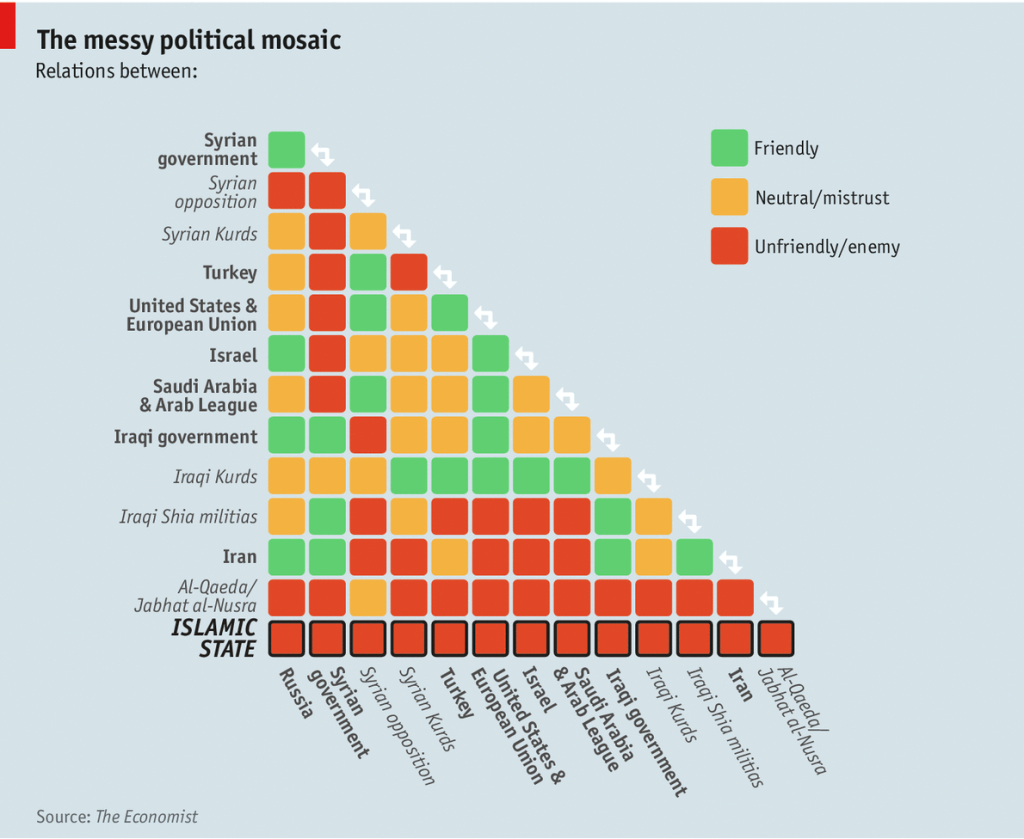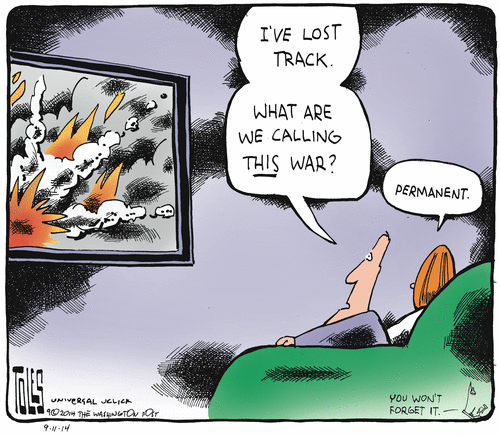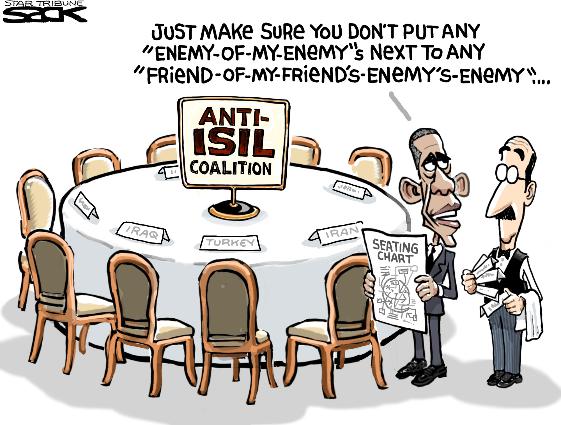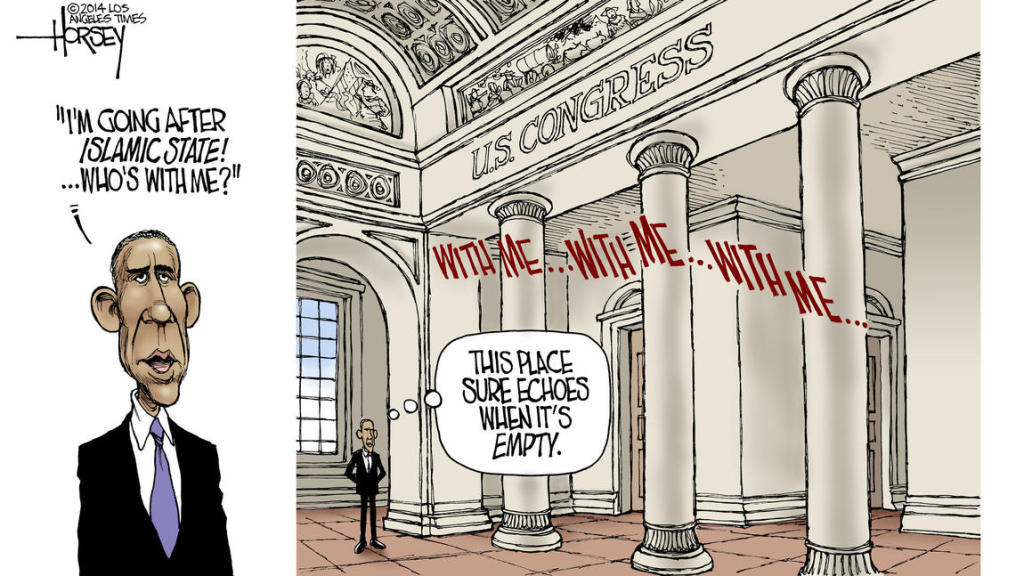We have been stuck in Iraq for 23 years, starting in 1991 when Pappy Bush gathered a coalition to chase Saddam Hussein’s invading forces from Kuwait. In 2003, George the Younger invaded Iraq, looking for WMDs. He killed Saddam and then got stuck in the quagmire. It took a commitment of large numbers of American troops to bring sectarian violence under control, and help a democratically elected Iraqi government to take hold. Then, Barack Obama extricated us from Iraq in 2011.
We are now back on track to be Iraq’s air force. Mr. Obama has America returning to “degrade and ultimately destroy” the ISIS jihadists who burst out of Syria and have reached the gates of Baghdad.
We have been asked to spend another $500 million to train Iraq’s fighters. Who pays to train the ISIS fighters? They seem to learn on the job. In fact, today’s New York Times reports on a Turkish ISIS fighter who trained for 15 days before assignment to a unit where he shot two people and was part of a public execution. From the NYT:
It was only after he buried a man alive that he was told he had become a full ISIS fighter.
And they make $150/day, plus all they can intimidate out of Iraqi businesses.
We are told that the effort will take many years. We are told that it will cost many more billions. NBC News estimates that costs will ramp towards $20 Billion per year:
The Defense Department budget for fiscal year 2014 authorized over $550 billion in spending on national defense, with an additional $80 billion for what’s called “Overseas Contingency Operations,” or OCO. That OCO fund is where officials have said funds for the ISIS fight will come from.
We are told that is quite possible that the effort will fail, because the (mostly) unwilling coalition Mr. Obama has rounded up really doesn’t want to fight ISIS. Why are most of them unwilling? The reasons vary. The Economist has a great chart that shows who sides with whom in the ME today:
The chart shows the degree to which America needs to play a delicate diplomatic game in holding together allies that may not always be friends with each other. Although ISIS is popular among young Muslim fundamentalists, the group has no allies on the political stage. But no country wants to put boots on the ground to cut ISIS off from their supply lines, their sources of cash, their command and communications. Dan Froomkin of the Intercept reports:
The big news out of the new “Global Coalition to Counter ISIL” meeting in Paris was that “several” Arab nations were willing to join President Obama’s latest bombing campaign.
But there were no details announced. And even the US’s most stalwart partner, the UK, wouldn’t actually commit to any specifics, because they are worried about the impact on the vote for Scotland secession. The “several” Arab countries are evidently “two”, the United Arab Emirates and Saudi Arabia. The Guardian reports that Saudi Arabia felt so threatened by Isis that it was prepared to act in a front-line role:
There is a very real possibility that we could have the Saudi air force bombing targets inside Syria…That is a remarkable development, and something the US would be very pleased to see
A Grand Coalition is the military answer. But can Mr. Obama bring so many incompatible parties together and weld them into a coordinated military campaign?
It requires a far greater fear of ISIS for Saudi Arabia, Iran, Turkey, Shias and Sunnis, Alawites and Kurds to be military allies, while working with Western military powers, whom several Arab nations actively dislike.
For at least the past decade, there has been no oxygen in the room for Non-Middle East/Non-Arab problems. And yet, the world is still full of problems, many of which could benefit from resources and attention by a Grand Coalition. Those problems will wait while we try to win a war we don’t want, against an enemy who doesn’t truly threaten us.
There is a logic against doing nothing. ISIS has grown faster (up from 8,000, to nearly 40,000 militants), while also improving qualitatively much faster than any other terrorist group in the last 40 years. With control of part of the oil revenues in Syria and Iraq, they are on a trajectory for even further growth.
So, once again we trek back into the badlands. As Springsteen says:
Badlands you gotta live it every day
Let the broken hearts stand
As the price you’ve gotta pay
We’ll keep pushin’ till it’s understood
And these badlands start treating us good







